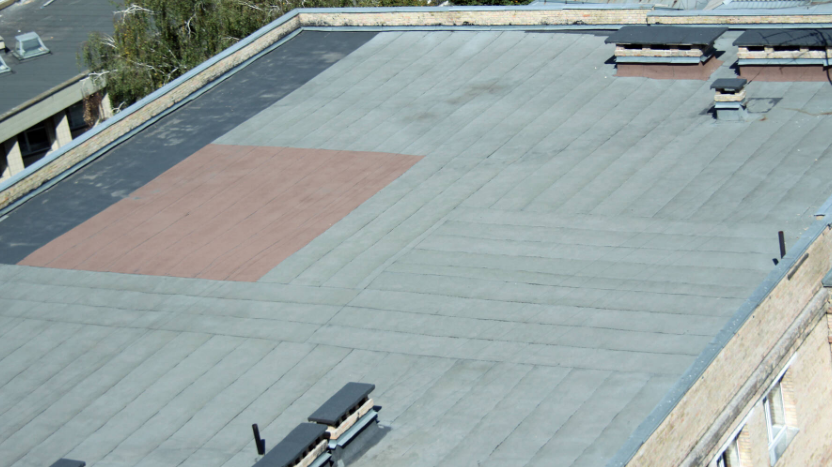
After overcoming the challenge of buying a home, homeowners are tasked with a new trial:
properly maintaining the property. Often, this leads them into uncharted waters. One example
of maintenance that some find intimidating is all the upkeep needed for a driveway. To help get
the most out of your driveway’s lifespan, let’s go over a few maintenance, upkeep and repair
basics.
First, there are many types of materials used for driveways. Each one has pros and cons when it
comes to maintenance, appearance, environmental impact, etc. To keep things simple, we’ll go
over the top two popular choices: asphalt and concrete.
Asphalt, also known as blacktop, is a budget-friendly option that’s also quick to install. Although
the lifespan for this material is shorter than others, it can last more than 20 to 25 years when
cared for properly. A drawback is that, as a petroleum product, asphalt is one of the least
environmentally friendly options for a driveway.
Concrete is another frequently chosen material. Its popularity comes from the fact that it is a
robust material capable of enduring any climate. The lifespan of concrete is up to 40 years,
depending on the level of care, and requires relatively little routine maintenance. There’s also
an environmental cost to concrete, but it’s not as high as asphalt.
Fortunately, there are ways to prevent damage and fight off general wear and tear for both
types. One of the top preventive measures is water control. By minimizing the amount of water
penetrating the surface, these materials can be preserved. Homeowners are encouraged to
direct downspouts away from the driveway and into the yard. Likewise, establishing a two- to
three-inch protective runoff area around the driveway’s edges could go a long way in
preventing damage brought on by water.
Other preventive actions include washing it regularly, avoiding chemical de-icers and salt for
cement, and being careful when shoveling snow, since scrapes can make the surface more
permeable. Of course, no matter how much care is put into the driveway, cracks and other
signs of damage will eventually appear. Some of these can be handled by the homeowner,
while others may be difficult to hide, patch or repair yourself.
For instance, most homeowners can seal-coat an asphalt driveway on their own every year. All
they need are the right supplies and know-how. Bigger problems, on the other hand, are a job
best left to the professionals. If your concrete driveway starts to sink, repair services should be
enlisted to raise and level it. The same goes for a full replacement. When the driveway has
reached the end of its lifespan, majorly subsided or is otherwise considerably impaired, you
should put your trust in the professionals.
Want to learn more? Check out the accompanying resource for further information on other
types of driveway materials and how to maintain them.
https://www.familyhandyman.com/article/driveway-types/
https://blog.nationwide.com/home/home-maintenance/driveway-concrete-repairs-and-tips/
Infographic created by Foamworx, Offering Professional Foundation Services Little Rock AR
 Flat roofs typically require complex water drainage systems. When these drainage systems are not correctly installed, they can become a liability for your building. The cost of a new flat roofing system can be significant, and price remains one of the most common criteria for selecting contractors in the bidding process. However, it should not be the only consideration.
Flat roofs typically require complex water drainage systems. When these drainage systems are not correctly installed, they can become a liability for your building. The cost of a new flat roofing system can be significant, and price remains one of the most common criteria for selecting contractors in the bidding process. However, it should not be the only consideration.


 Your pool can be stunning and unique in any way you choose. If you love grandiose styles and classical approaches,
Your pool can be stunning and unique in any way you choose. If you love grandiose styles and classical approaches,  There are various sizes and shapes of swimming pools available. They play different roles in residential landscapes and can add much to the property’s overall look.
There are various sizes and shapes of swimming pools available. They play different roles in residential landscapes and can add much to the property’s overall look.
 Foggy windows are a common problem during the winter months due to cold, humid weather. Foggy windows can be very annoying, not to mention a safety hazard, as they impair visibility. Fortunately, there are a few simple steps you can take to prevent your windows from fogging up. In this blog post, we will discuss the best ways to prevent foggy windows, so that you can enjoy clear, fog-free windows all winter long.
Foggy windows are a common problem during the winter months due to cold, humid weather. Foggy windows can be very annoying, not to mention a safety hazard, as they impair visibility. Fortunately, there are a few simple steps you can take to prevent your windows from fogging up. In this blog post, we will discuss the best ways to prevent foggy windows, so that you can enjoy clear, fog-free windows all winter long. 


